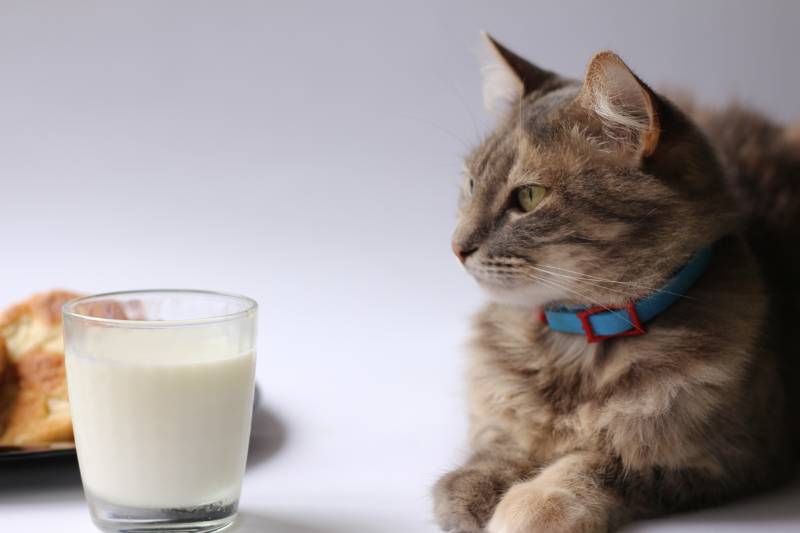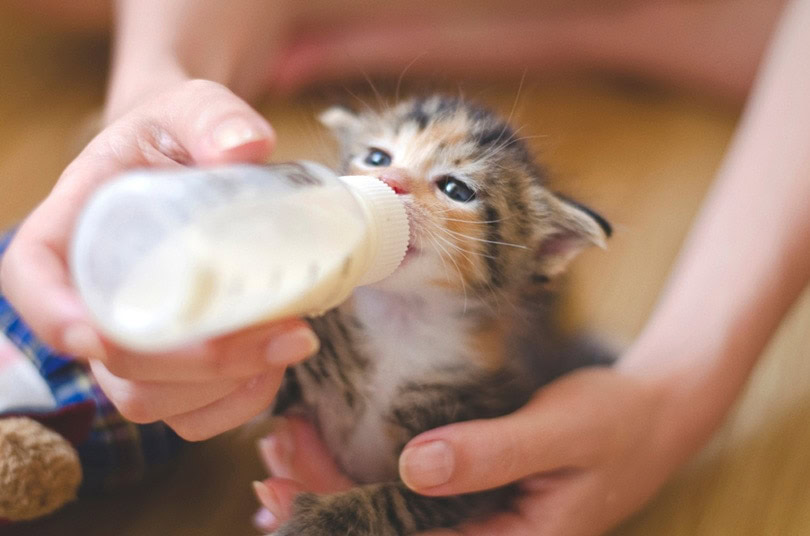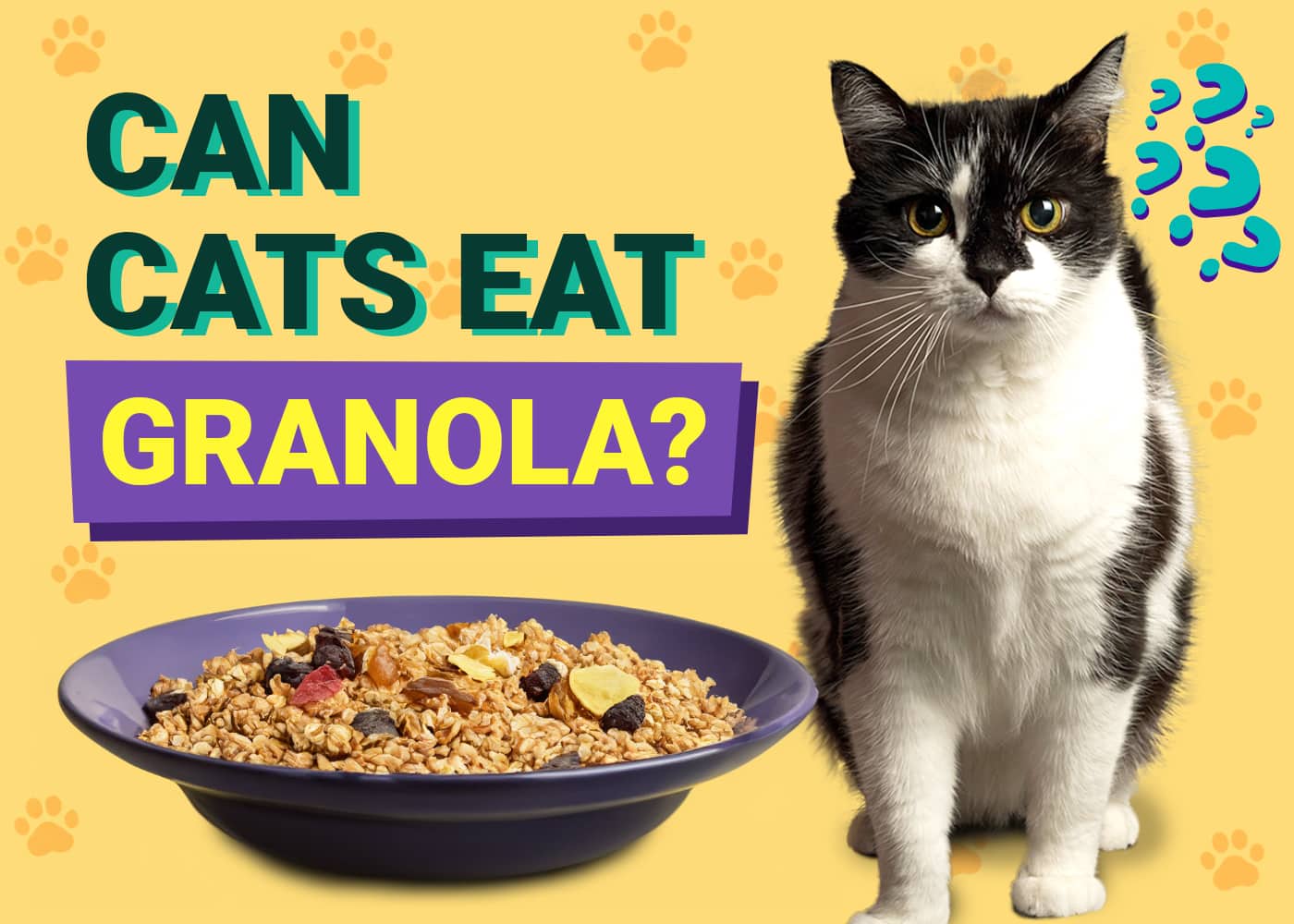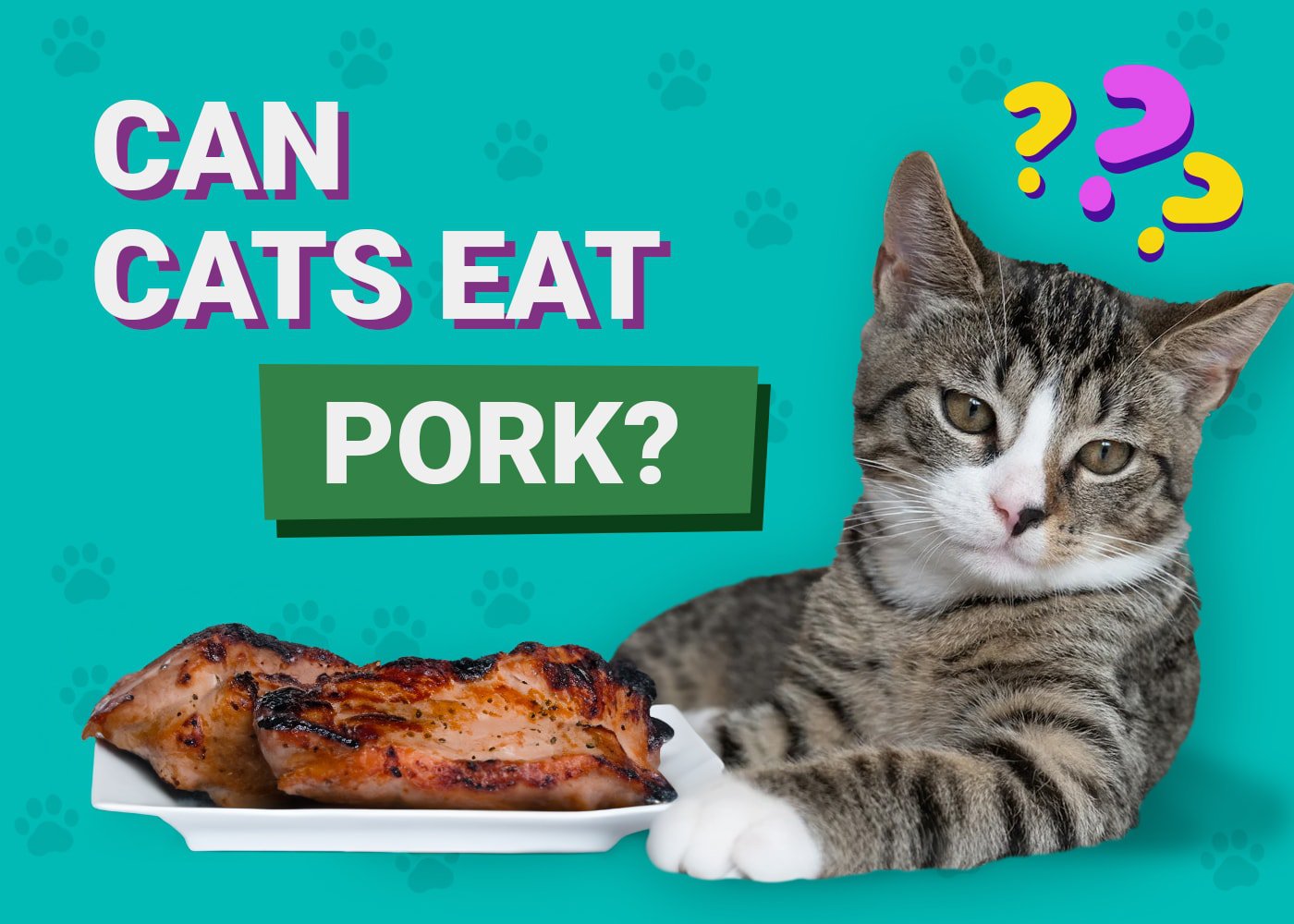VET APPROVED

The information is current and up-to-date in accordance with the latest veterinarian research.
Learn more »Click to Skip Ahead
You may have watched online videos of female dogs nursing young kittens. Some lost their puppies and seem happy to care for kittens instead. As adorable as this sounds, can cats be nursed using dog milk? The short answer is yes, as a temporary measure, but generally, they shouldn’t, as dog milk is not nutritionally suitable for them.

Can Cats Drink Dog Milk?
Cats and dogs may seem similar, but they are biologically very different. For example, cats are obligate carnivores that require meat to survive, while dogs are technically omnivores that need meat and plant material. The nutritional content of breast milk naturally reflects the mom’s diet, so you ideally want to match milk with the appropriate species.
But we don’t live in a perfect world. Perhaps you find a stranded litter of kittens, the pet stores are closed, and you have a nursing dog at home. In emergency cases like this, giving dog milk to kittens is okay. It won’t hurt them as a temporary measure, and it might even save their life, similar to how homemade kitten formula can keep a kitten from starving.
However, on a regular basis, you should try to match the species to the appropriate milk or formula. The nutritional requirements for canines and felines differ. For example, because cats eat more meat than dogs, their milk contains more protein. Serving the wrong type of milk can result in stunted growth or digestive upset, especially if the cats consume it for long periods. Unfortunately, upsetting a kitten’s tummy doesn’t take much. Diarrhea and vomiting can quickly dehydrate young kittens, so it’s best only to give them species-appropriate milk or formula, if at all possible, to stay safe.
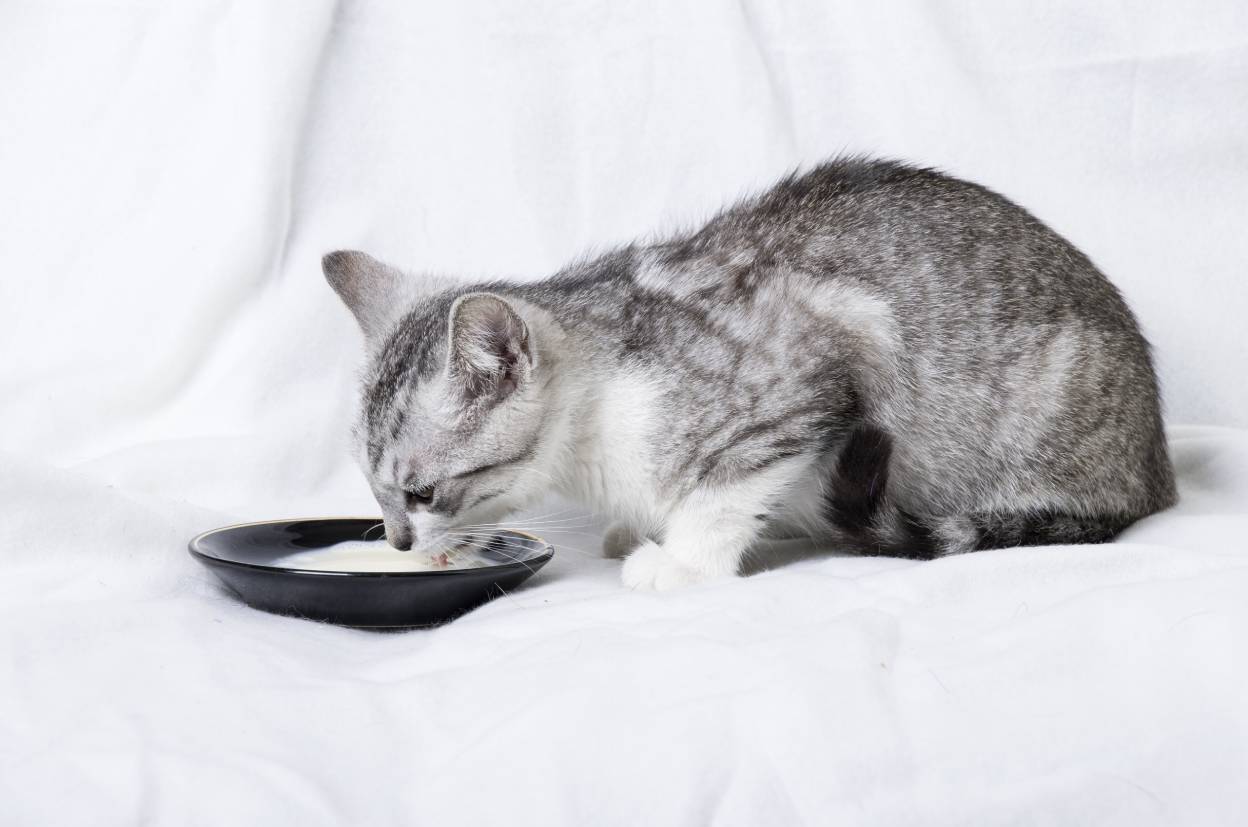
Can Cats Have Dairy?
Like humans, most cats are born with the natural ability to process lactose. Over time, however, this tolerance tapers off until they are lactose-intolerant. This is a quick process for some cats that occurs shortly after weaning. Others remain somewhat tolerant of lactose in their adult lives.
Most cats are lactose intolerant. Since dairy isn’t a dietary requirement, avoiding milk, yogurt, or cheese is recommended. However, intolerance isn’t the same as an allergy, and very few cats are allergic to cow’s milk. If your cat can digest dairy without any digestive upset, it’s safe to occasionally give them a little lap of milk or a bite of cheese.
The best option for feeding a neonatal kitten is to purchase a commercial kitten milk replacer. You can also make homemade kitten formula from cow’s milk, egg yolks, and Karo syrup in a pinch. It’s important to note that you should never substitute cow’s milk for cat’s milk for long-term use. Cow’s milk contains more lactose, carbohydrates, and sugar than cat’s milk. Remember, an animal’s breast milk reflects the animal’s diet, and cows are vegetarians. Thus, their milk isn’t a suitable meal replacement for carnivorous cats.
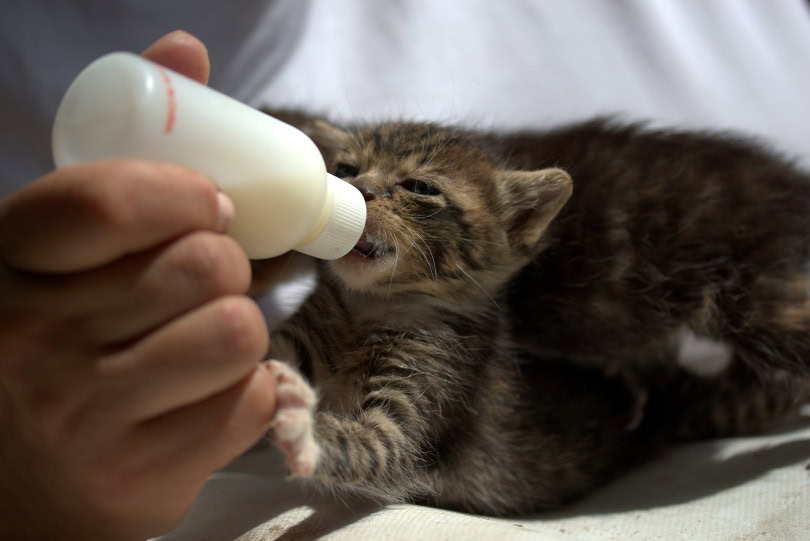
Can Cats Drink Human Milk?
As you might suspect by now, human milk doesn’t contain enough protein to sustain a young kitten since humans are omnivores. While human milk probably wouldn’t hurt them, it shouldn’t be used as a kitten milk replacement.

Conclusion
In an emergency, it’s okay to feed dog milk to a kitten. However, the different dietary requirements of the two species, as well as a kitten’s fragile physical state, make it crucial to match milk or formula to the appropriate species as soon as possible. While some cats can digest dairy, the majority of felines are lactose intolerant. It’s usually best to avoid giving dairy to your adult cat. The best milk for a kitten is feline milk or a commercially produced formula that’s safe and suited to their needs.
See also:
- Best Cat Foods for Nursing Mother Cats – Reviews & Top Picks
- Can Cats Drink Chocolate Milk? Vet-Approved Risks, Facts, & FAQ
Featured Image Credit: Shelofast Hanna, Shutterstock
